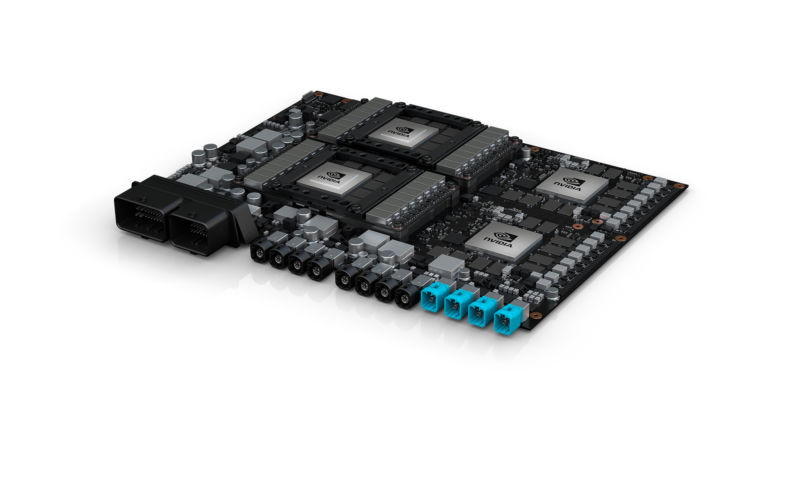The March 18 crash in Tempe, Arizona, where one pedestrian was struck and killed by an Uber self-driving car based on a Volvo XC90, has caused massive reverberations across the industry.
The latest company to take a step back from self-driving car technology? Nvidia.
Reuters reported on Tuesday that Nvida, which sold some of the computer hardware to Uber for its self-driving technology, has halted autonomous vehicle testing in the wake of the crash.
Nvidia has been testing its own self-driving cars in New Jersey, California, Japan, and Germany. Following the incident in Arizona, the state's governor, Doug Ducey, blocked Uber from continuing self-driving tests as well. In addition to the block, Ducey also issued an executive order stating a company is liable if one of its self-driving cars negligently kills a person.
NVIDIA Drive PX Pegasus
Nvidia's slowdown comes after it touted a new supercomputer chip that was to give vehicles true Level 5 self-driving capability. The scale of autonomy ranges from Level 1—a car handles some basic controls such as throttle—to Level 5 where a car handles every single function equal to that of a human driver. The company planned to give automakers access to the chip, called Pegasus, in late 2018.
There are a vast amount of factors at play in the fatal crash. According to an Automotive News Europe report on Tuesday, Uber had disabled the Volvo XC90's standard collision avoidance technology. The supplier, Aptiv, clarified that the company's technology did not fail and cause the crash.
"We don't want people to be confused or think it was a failure of the technology that we supply for Volvo because that's not the case," Zach Peterson, a spokesman for Aptiv, said.
Uber will also not renew its permit to test self-driving cars in California following the Arizona crash. Volvo has not commented on the matter as it awaits a full report following an investigation.